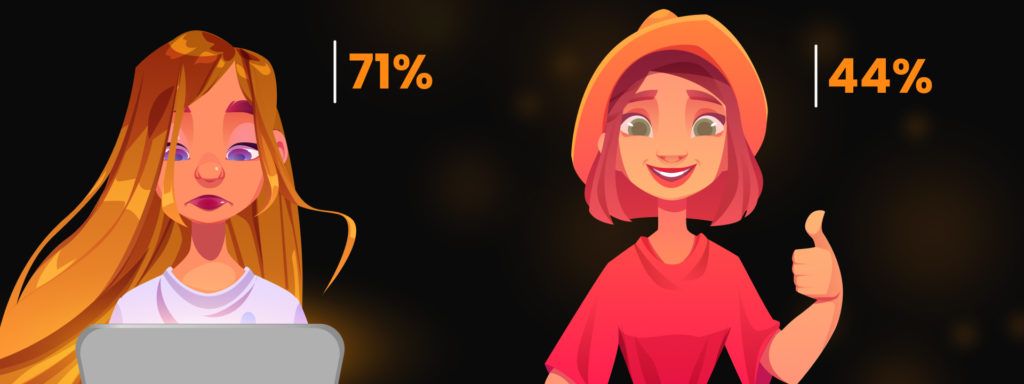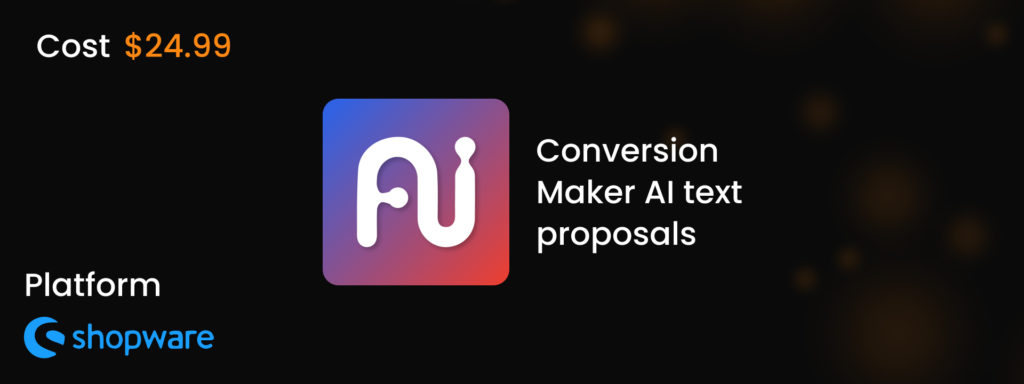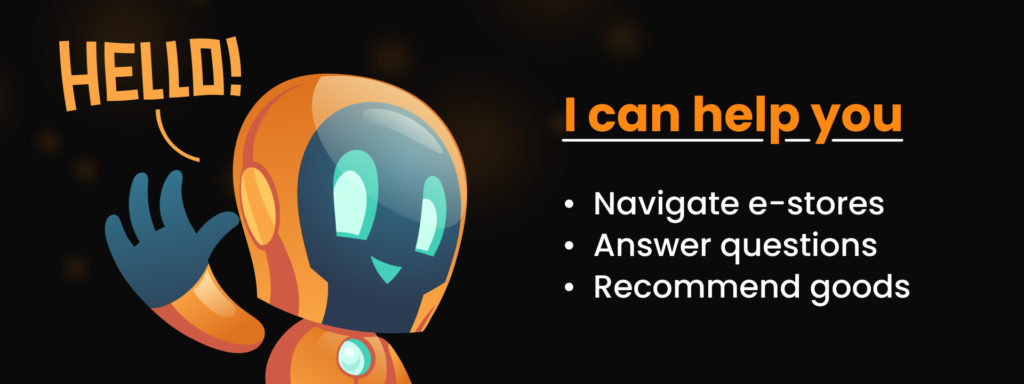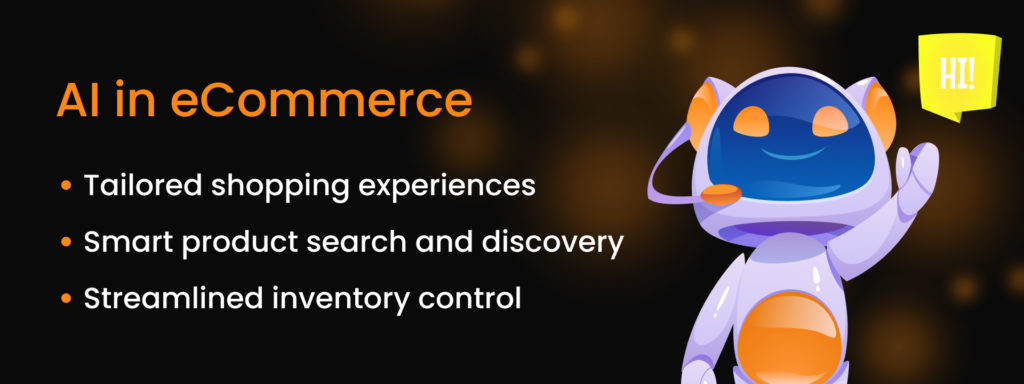Imagine this: you’re an e-store owner, and you’ve been struggling to drive revenue growth. But what if we told you that the solution to your problem lies in the power of AI? Yes, you heard that right.
AI, short for Artificial Intelligence, is a game-changing technology that’s taking the world by storm. In simple terms, AI refers to computer systems that can perform tasks that typically require human intelligence, like problem-solving, learning, and decision-making.
There are several types of AI, including machine learning, natural language processing, and computer vision, each with its unique capabilities.
By leveraging the power of AI, you can take your e-store revenue growth to new heights.
Sounds intriguing, right? So let’s dive in!
The Importance of AI in eCommerce
In recent years, AI has become a crucial tool for businesses in the eCommerce sector. The technology can help e-store owners to streamline their operations, improve the customer experience, and ultimately drive revenue growth. Here are some of the ways in which AI can benefit your e-store.
Tailored shopping experiences
AI can analyze customer data and behavior to offer personalized product recommendations, discounts, and promotions. This can lead to increased customer satisfaction and loyalty.

According to a study by Segment, 71% of consumers feel frustrated when their shopping experience is impersonal. In contrast, 44% of consumers say they will likely become repeat buyers after a personalized shopping experience.
Smart product search and discovery
AI-powered search engines can provide more accurate and relevant search results, making it easier for customers to find what they’re looking for. AI can also recommend related products based on a customer’s search history or previous purchases.

Research by Gartner predicted that by 2021, 30% of online browsing sessions will include some form of visual or voice search. And now it looks true!
Streamlined inventory control
AI can help e-store owners to predict demand and manage inventory more efficiently. By analyzing past sales data, AI can recommend which products to restock and how much inventory to keep on hand.

According to a study by McKinsey, AI-driven inventory optimization can reduce out-of-stock incidents by 50% and reduce overstocking by 30%.
Fraud prevention
AI can help detect fraudulent activities such as credit card fraud and account hacking. By analyzing customer behavior and transaction patterns, AI can flag suspicious activities and prevent financial losses for the e-store.

A report by Juniper Research predicts that AI-based fraud detection in e-commerce will generate over $11 billion in annual revenue by 2023.
These are just a few examples of how AI can benefit e-store owners. As you can see, the potential for AI in eCommerce is vast, and the technology is only becoming more advanced with each passing day.
AI for eCommerce: more solutions for revenue growth
Businesses in the modern e-commerce sector are always on the lookout for innovative strategies to improve sales and maintain a competitive edge. Artificial intelligence (AI) has quickly become a game-changer for online retailers seeking to increase their bottom line.
Chatbots for customer support
Using chatbots as a customer service option is one way AI is helping online retailers increase sales. Chatbots are conversational customer service tools driven by artificial intelligence. They may answer queries, suggest products, and deal with consumer concerns. Because of their ability for multitasking, chatbots have the potential to speed up responses and boost client satisfaction.

According to a study by Business Insider, chatbots can save businesses up to 30% in customer support costs, and a survey by Oracle found that 80% of businesses plan to use chatbots for customer support by 2020.
H&M is one business that has used chatbots to help its customers. The “Kik” chatbot is used by the apparel store to aid clients in their product searches and purchases. In fact, the eCommerce AI chatbot has helped to increase customer engagement and drive sales for H&M.
AI-powered pricing strategies
Using AI-driven pricing tactics is another way AI may boost online retailers’ bottom lines. Artificial intelligence (AI) can assess market trends, customer behavior, and rival pricing data to suggest fair rates. E-commerce sites may improve their user base and revenue by charging rates that are both competitive and representative of market demand.

McKinsey found that businesses that use AI-driven pricing strategies saw an increase in revenue of up to 10% and a rise in profit margins of 2-5%.
Wayfair, an online furniture retailer, is one e-store that has effectively used AI-powered pricing tactics. Wayfair’s “Pricing Engine” is an algorithm used to assess market conditions and determine product pricing. The algorithm has helped Wayfair to achieve significant revenue growth and improve profitability.
AI in eCommerce examples: How leading brands boost revenues
When it comes to AI use cases in eCommerce, there are several brands that have successfully integrated AI into their sales and marketing strategies. Let’s take a closer look at how Amazon, Alibaba, and Sephora, and others are doing thus.
How Amazon is leveraging AI

Everybody knows that Amazon is one of the pioneers of using AI in e-commerce. Amazon’s chatbots can:
- handle customer inquiries
- provide product recommendations
- process orders.
This has reduced the response time for customer inquiries, leading to higher customer satisfaction rates. In addition to chatbots, Amazon also uses AI to personalize product recommendations for each customer, improving the customer experience and increasing the chances of conversion.
Alibaba and AI technology

This Chinese e-commerce giant has been using AI to power its e-commerce platform for several years. The company uses AI to personalize the shopping experience for each customer, providing unique product recommendations and search results. Alibaba’s AI chatbot for e-commerce, called AliMe, can also handle customer inquiries and provide product recommendations.
How Sephora employs AI

Sephora, the beauty and cosmetics retailer, also uses AI to provide personalized product recommendations based on a customer’s browsing history and purchase behavior. Sephora’s AI-powered chatbot for e-commerce, called Sephora Virtual Artist, allows customers to try on makeup virtually. In its turn, it enhances the customer experience and increases the chances of conversion.
Fashion brands using AI

H&M, Adidas, and Levi’s use AI to personalize product recommendations, create targeted marketing campaigns, and optimize pricing strategies. We can create a custom fashion e-store for your business and help you implement the latest AI technology.
Medical companies adopting AI

Medtronic uses AI algorithms to analyze customer data, such as browsing and purchase history, to recommend personalized products. Also, Walgreens, a well-known pharmacy chain in the United States, uses AI chatbots to provide assistance on prescription refills and medication dosage. In addition, HealthTap uses AI personalization eCommerce to analyze customer data, such as symptoms and medical history, to recommend appropriate doctors and treatments.
AI and furniture manufacturers

At Wayfair, machine learning algorithms examine a user’s actions and browsing data to provide tailored product suggestions and price adjustments. The outcome is a 40 percent rise in sales thanks to better suggestions for individual customers. Besides, Ikea employs AI chatbots to respond to frequently asked questions from clients like “Where’s my order?” and “Where can I find X in my local store?”
AI plugins for Magento & Shopware stores
Let’s explore some of the top AI plugins available for Magento and Shopware, their features, and how they can benefit your online store.
Rep AI Sales Assistant

The Rep AI Sales Assistant is a powerful tool for e-commerce websites that helps personalize the shopping experience for customers. It provides insights into customer behavior, such as why they may be abandoning their carts, and offers real-time assistance to reduce drop-off rates. The AI solution can also answer customer service-related questions, thereby reducing the costs of hiring human agents.
Free
ChatGPT AI Product Content Generator

This tool enables the automatic generation of content based on the product’s name or product attribute values in the store scope. Users can easily connect OpenAI GPT 3 with Magento 2 using the API key and set the API URL and key in the backend. It also allows for the extension to be enabled or disabled from the backend on a store scope level.
$1
AI Assistant for Magento 2

This extension offers a variety of functions, including customer support, catalog management, blogging and social media, and email newsletter generation. The AI assistant can improve the efficiency of the support team by generating answers to customer messages with guiding key points. The module can also generate product descriptions, rewrite existing descriptions, generate meta tags and offer ideas for new blog posts or social media posts. The module is highly customizable, and users can create prompts for unique tasks or tune existing prompts.
$149
Conversion Maker AI text proposals for Shopware

This plugin allows for the fast and fully automatic creation of product descriptions in over 18 languages with the touch of a button. The AI generates up to three different text suggestions, making it easier for users to select the best fit for their products. Its setup is easy, and users can directly access this feature in their own store at the push of a button.
$24.99
AI Tools – Intelligent shop management for Shopware

This plugin offers a range of features, including keyword generation for SEO and search. It can automate the creation of relevant search terms and generate attractive product SEO titles and descriptions. You can use your content to train the AI in eCommerce and use smart snippets in category content to quickly generate vast amounts of content.
Free
ChatGPT’s Automated SEO Optimization for Shopware

ChatGPT’s Automated SEO Optimization with AI is a plugin that helps e-commerce stores optimize their SEO. The plugin can identify relevant topics and search terms, categorize keywords based on their search intent, and summarize them according to their semantic relevance. ChatGPT can also create attractive page titles, metadata, and revise existing texts for improved grammar, style, and spelling.
Potential future developments in AI for E-commerce
There are a number of promising directions that AI might go in the future that could have a major influence on the expansion of online retail sales. Some of the brightest spots in AI powered eCommerce are listed here.
Predictive analytics
AI-powered predictive analytics can help e-commerce businesses gain insights into customer behavior and preferences. Predictive analytics algorithms can make predictions about what customers are likely to buy in the future by analyzing customer data, including:
- purchase history
- browsing history
- social media activity

As a result, companies may now provide customized suggestions for products, promotions, and discounts to each unique client.
Predictive analytics may also improve stock control and logistics in the supply chain. Businesses may reduce the risk of stockouts and overstocking by adjusting their inventory levels based on demand forecasts, which reveal which goods are most likely to sell.
It’s easy to see how helpful predictive analytics can be for customers: they get suggestions tailored specifically to their tastes. And of course, this might enhance their shopping experience and encourage them to return for more.
Virtual shopping assistants
Virtual shopping assistants are AI-powered chatbots that can help customers:
- navigate e-commerce websites
- answer questions
- make recommendations.

The use of virtual assistants in stores has the potential to boost customer satisfaction and cut down on support expenses. An AI eCommerce platform may better cater to their customers’ needs by automating mundane operations like answering commonly asked queries and handling returns and refunds.
Virtual shop assistants facilitate customer service and product discovery with less effort. These chatbots can interpret questions from customers and respond appropriately thanks to the use of natural language processing and machine learning algorithms.
Let’s integrate a virtual shopping assistant into your e-store
Voice-activated shopping
With the rise of voice assistants like Amazon’s Alexa and Google Assistant, customers can now shop using voice commands.
AI-powered voice assistants can understand natural language and context, allowing customers to search for products, place orders, and make payments using voice commands. This makes shopping more convenient and hands-free, allowing customers to multitask while they shop.

Voice-activated shopping provides a novel channel for brands to connect with consumers and expand their client base. To increase brand awareness and sales, companies may use natural language processing to better interpret client inquiries and optimize their product listings for voice search.
AI in eCommerce: closing thoughts
Summing up, AI can give valuable insights into your customers’ behavior and preferences, allowing you to create personalized marketing campaigns that drive sales and foster loyalty. It can also automate repetitive tasks such as inventory management, customer service, and order fulfillment, freeing up time and resources for more strategic initiatives.

At IT Delight, we help e-stores leverage the power of AI to drive revenue growth and streamline operations. Our team can help you identify the best AI solutions for your business and implement them seamlessly into your existing systems.
So don’t let your rivals get ahead of you in the competitive world of e-commerce! Take action now and contact us to learn more about how we can help you unlock new opportunities for growth and success.
